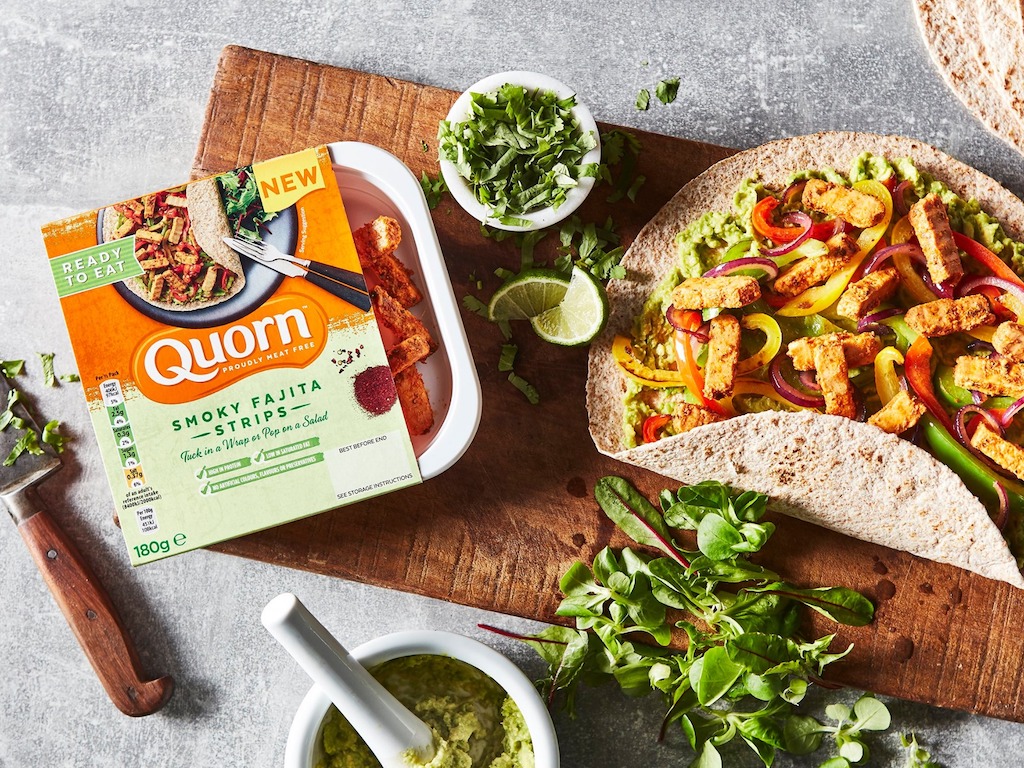Want to Build Lean Muscles? Try Mycoprotein Instead of Meat
3 Mins Read
A vegan diet rich in mycoprotein, the natural high-fiber fungi, can be just as effective at building muscle as an omnivorous diet, according to a new study from the University of Exeter.
The study, published in the Journal of Nutrition, aimed to explore if a vegan diet that contained mycoprotein, such as Quorn products, could support muscle growth during resistance training to the same extent as an omnivorous diet. With an increasing number of adults reducing their meat intake, the study focused on the effectiveness of mycoprotein as a vegan protein source.
The findings
The study was divided into two phases. In the first phase, 16 healthy young adults consumed protein from omnivorous or exclusively vegan sources over three days, while metabolism measures were taken. In the second phase, 22 healthy young adults completed a ten-week high-volume progressive resistance training program while consuming either a high-protein omnivorous diet or a vegan diet rich in mycoprotein. The results showed that both groups had comparable increases in muscle mass and strength, with no significant differences between the two.

The group on the high-protein omnivorous diet gained 2.6 kg of whole-body lean mass, while the group on the vegan diet gained 3.1 kg. Both groups also increased the size of their thigh muscles by the same amount (8.3 percent) over the course of the trial. Based on these results, the research team concluded that a vegan diet that’s high in mycoprotein could be just as effective as a high-protein omnivorous diet in building muscle during resistance training.
“Our study demonstrates that mycoprotein is comparable to animal proteins in terms of its ability to facilitate increases in muscle mass and strength in young adults who are regularly engaging in resistance training,” Dr. Alistair Monteyne, who conducted the trial at the University of Exeter, said in a statement.
‘Effective protein food’
Monteyne noted that there is now a strong body of evidence to show that mycoprotein is an effective protein food to support muscle maintenance and growth, building on 2020 research that found mycoprotein builds muscle to a greater extent than conventional milk protein.
Another study published in 2021 also found that a mycoprotein-rich vegan diet supports the maintenance of muscle tissue in older adults. But this latest study is the first to directly compare mycoprotein with an omnivorous diet, including meat, and to do this over an extended ‘free living’ period of 10 weeks of the participants’ daily life.

The study comes after a report involving the University of Exeter researchers found that regular widespread consumption of plant-based proteins could be one of three ‘super leverage points’ that could give hope for a breakthrough on climate change through reducing emissions from livestock farming.
Tim Finnigan, Scientific Advisor for Quorn Foods, said that the study’s findings continue to show mycoprotein’s benefits and efficacy in replacing animal products.
“At a time when a growing number of people are following official dietary advice to consume less meat for the sake of their health and the planet, it is positive that a high-quality meat-free protein that is scientifically proven to build muscle mass at a rate comparable to any animal-derived protein is available,” Finnigan said.
“This study builds on a growing body of independently conducted research, thought to be the largest to exist for any alternative protein, that clearly demonstrates mycoprotein’s nutritional excellence as a complete protein with a proven ability to protect against a range of diseases and health conditions.”




